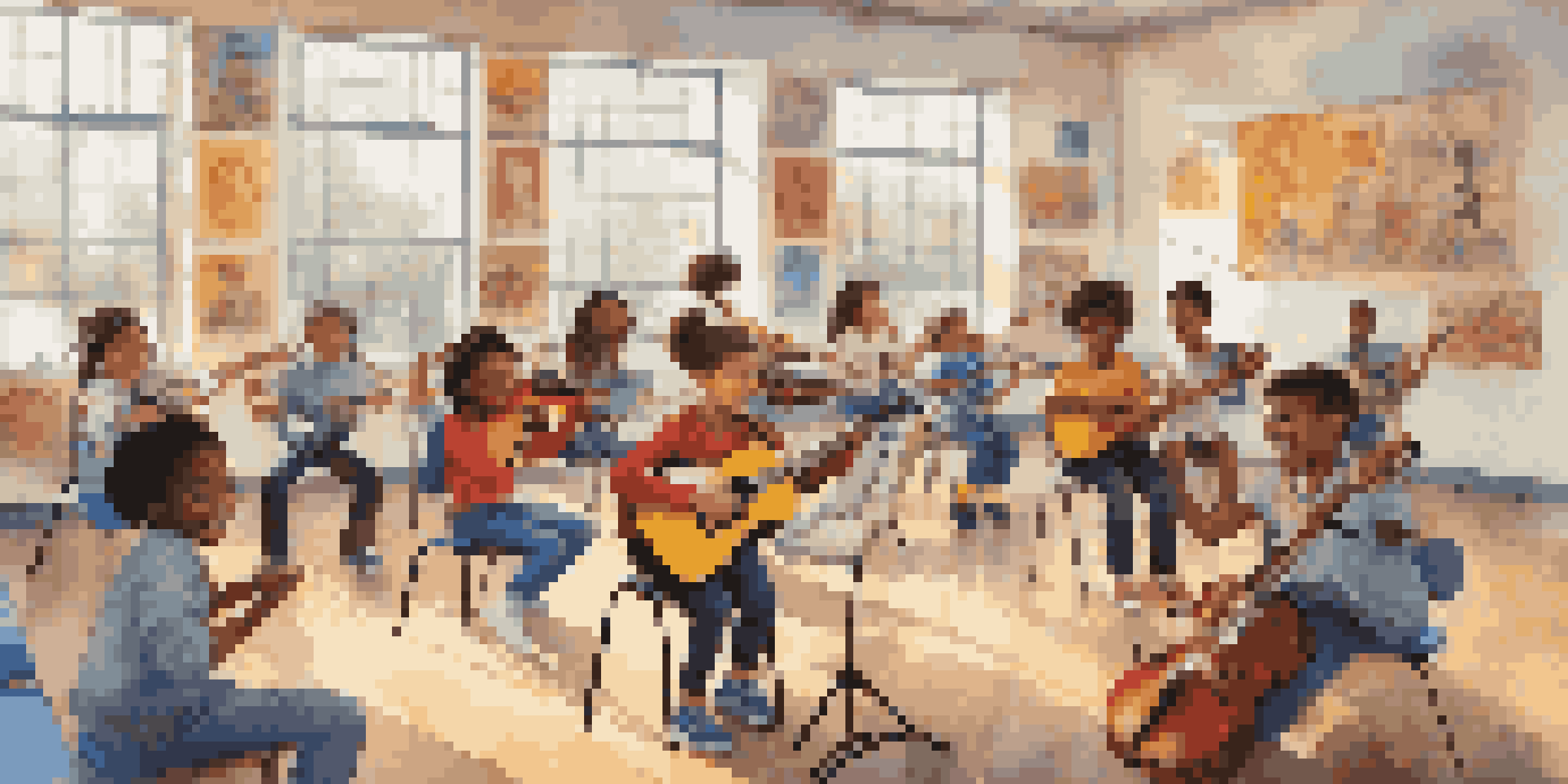The Impact of Music Education on Building Self-Esteem in Youth

Understanding Self-Esteem and Its Importance for Youth
Self-esteem is the way we perceive and value ourselves, and for youth, it plays a crucial role in their development. High self-esteem is associated with better mental health, resilience, and overall well-being. Conversely, low self-esteem can lead to social withdrawal, anxiety, and poor academic performance. Thus, fostering a positive self-image during formative years is essential for nurturing confident and capable individuals.
How Music Education Instills Confidence in Young Learners
Engaging in music education offers youth the chance to express themselves creatively, which can significantly boost their confidence. Whether it’s learning an instrument or participating in a choir, the process of mastering a musical skill provides a sense of accomplishment. As students perform in front of peers, they gradually learn to overcome anxiety and embrace vulnerability, two essential components for building self-esteem. This journey of growth in music can translate to greater self-assurance in other areas of life.
Music Education Builds Confidence
Engaging in music education allows youth to express themselves creatively, leading to increased self-esteem through mastery and performance.
The Role of Collaboration in Music Education
Music is inherently collaborative; whether in a band, orchestra, or choir, students learn the importance of teamwork. Working alongside others to create harmonious sound fosters a sense of belonging and shared achievement. This communal experience helps youth realize they are part of something larger than themselves, which can enhance their self-worth. By supporting each other, students not only build their individual confidence but also strengthen their social skills.
Overcoming Challenges Through Music Education
Learning music involves facing and overcoming challenges, such as mastering difficult pieces or performing in front of an audience. These experiences teach resilience and perseverance, two key traits that contribute to a healthy self-esteem. When students encounter setbacks, they learn that failure is a part of the learning process. This realization can empower them, encouraging a growth mindset that extends beyond music and into their everyday lives.
Collaboration Enhances Self-Worth
Participating in group music activities fosters teamwork and a sense of belonging, which boosts individual confidence and social skills.
Expressing Emotions Through Music and Its Effects
Music serves as a powerful outlet for expressing emotions, which can be particularly beneficial for youth navigating the ups and downs of adolescence. Participating in music education allows students to channel their feelings into creative expression, leading to emotional release and understanding. This process helps them articulate their emotions better, which is a crucial step in developing self-awareness and self-acceptance. As they learn to express themselves, they build a stronger sense of identity and confidence.
The Long-Term Benefits of Music Education on Self-Esteem
The benefits of music education extend far beyond the classroom; they often have a lasting impact on students' self-esteem as they grow. Many studies have shown that individuals who engage in music education tend to have higher self-esteem and better social skills in adulthood. These attributes can lead to more fulfilling relationships and professional success. By investing in music education early on, we are providing youth with tools that will serve them well throughout their lives.
Long-Term Self-Esteem Benefits
Music education positively impacts self-esteem and social skills well into adulthood, contributing to fulfilling relationships and professional success.
Creating Supportive Environments for Music Learning
To maximize the positive impact of music education on self-esteem, it’s vital to create supportive learning environments. This means fostering a culture of encouragement where mistakes are seen as opportunities for growth. Educators and parents play a significant role in reinforcing this mindset, helping students feel safe to explore and express themselves. When young learners feel valued and supported, they’re more likely to thrive both musically and personally.
Conclusion: The Transformative Power of Music Education
In conclusion, music education is more than just learning notes and rhythms; it’s a pathway to building resilience and self-esteem in youth. Through collaboration, expression, and overcoming challenges, students develop confidence that will benefit them in all areas of life. As we recognize the importance of nurturing self-esteem, investing in music education becomes a vital step in shaping the future of our youth. By prioritizing these programs, we empower the next generation to embrace their potential and thrive.